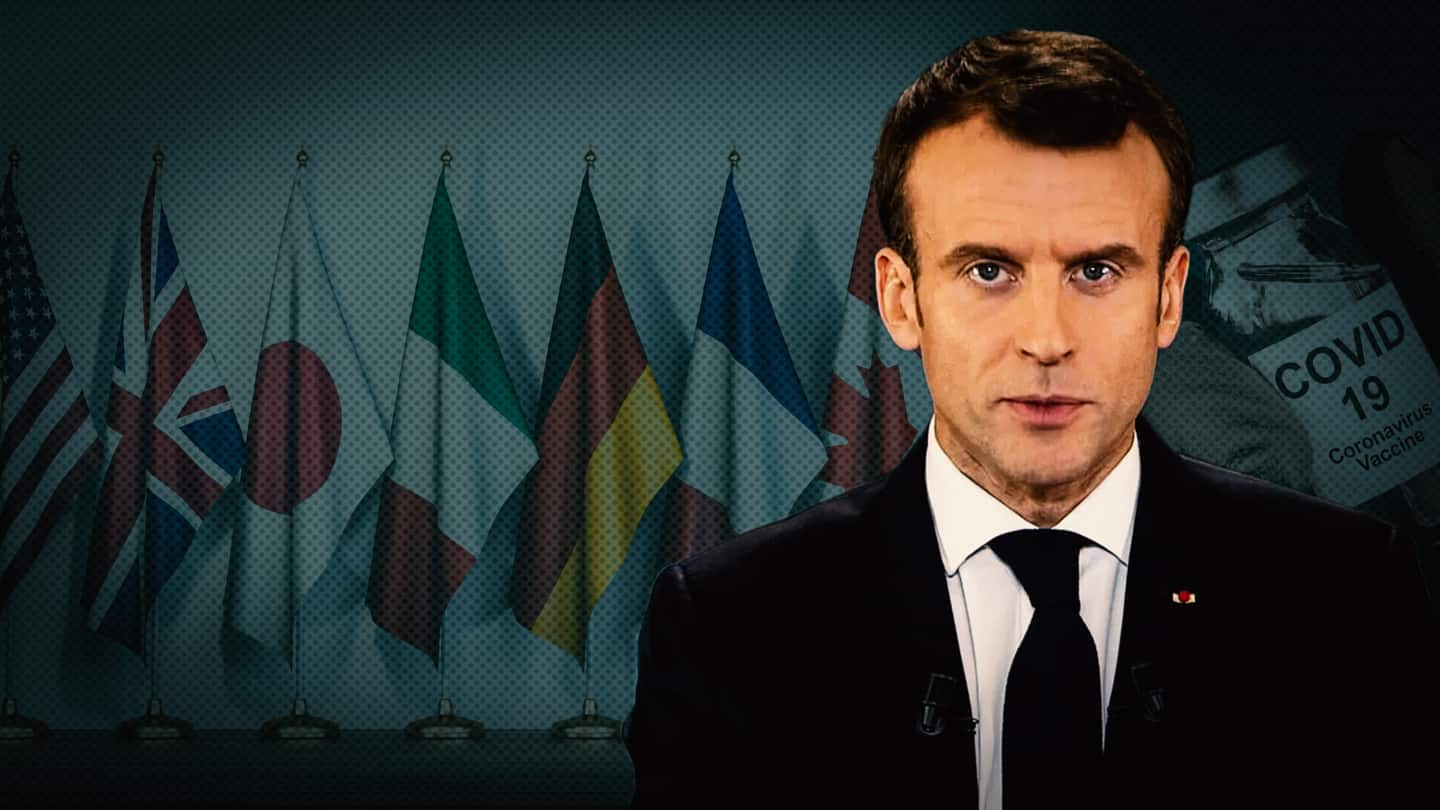
France supports India over lifting export curbs on vaccine materials
What's the story
French President Emmanuel Macron has asked the Group of Seven (G-7) countries to end restrictions on the export of raw materials needed for the production of coronavirus vaccines - a demand India has been raising with the United States as it struggles with shortages. Macron made the statement at a press conference before G-7 meeting in Cornwall, England, on Friday. Here are more details.
Statement
'Production is hit in middle-income, poor countries'
"As we know, there have been export bans from several G-7 member countries, which have blocked production in other countries," Macron said at the press conference He highlighted that the restrictions have hindered vaccine production in middle-income countries, effectively marring the supply in poorer countries, particularly in the Africa. "I will take just one example, India."
Statement
'Restrictions must be lifted so India can produce more'
"India, and in particular the Serum Institute of India, was blocked in its production by restrictions on the export of ingredients necessary for the production of these vaccines which came from some G-7 economies," Macron further said. "Restrictions must be lifted so India can produce more for itself and quickly supply Africans in particular, who are dependent on its production."
Restrictions
US had imposed export ban, affecting India's production
The US, also a G-7 member, had imposed an export ban on critical raw materials for COVID-19 vaccines as it asked companies to prioritize domestic consumption. That move hit the Serum Institute of India's production, which India was relying heavily on for its vaccination efforts. In April, SII's CEO Adar Poonawalla had urged the US President Joe Biden to lift the embargo.
Donation
G-7 countries will donate 1B vaccine doses to the world
The leaders of the G-7 countries have also decided to send out one billion (100 crore) COVID-19 vaccines to the poorest nations across the globe. To that pool, the United States is expected to provide 500 million doses while 100 million will come from the UK. However, several experts have argued that waiving patents and sharing technology would be a better approach than charity.
Modi's participation
Indian PM to attend the Summit via video conferencing
India's Prime Minister Narendra Modi is expected to attend the outreach component of the G-7 Summit through video conferencing on June 12-13, along with counterparts from Australia, South Korea, and South Africa. It was announced in May that PM Modi would not attend the Summit in person owing to the deadly second surge of COVID-19 cases in India.